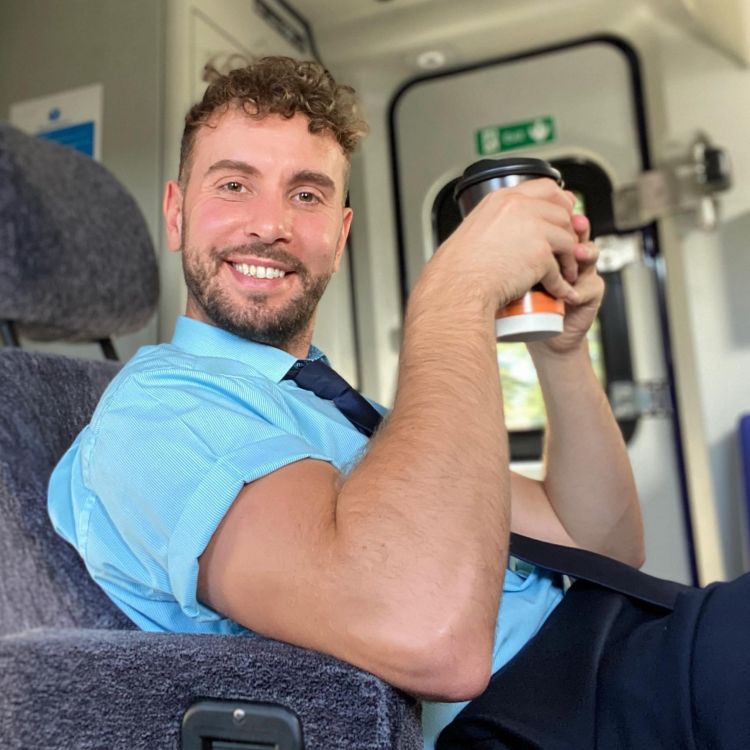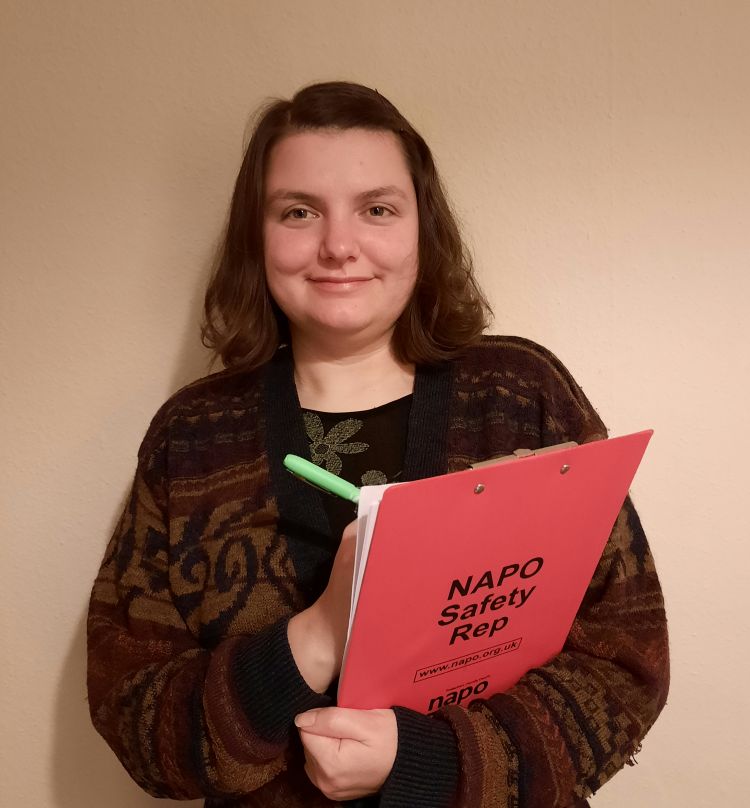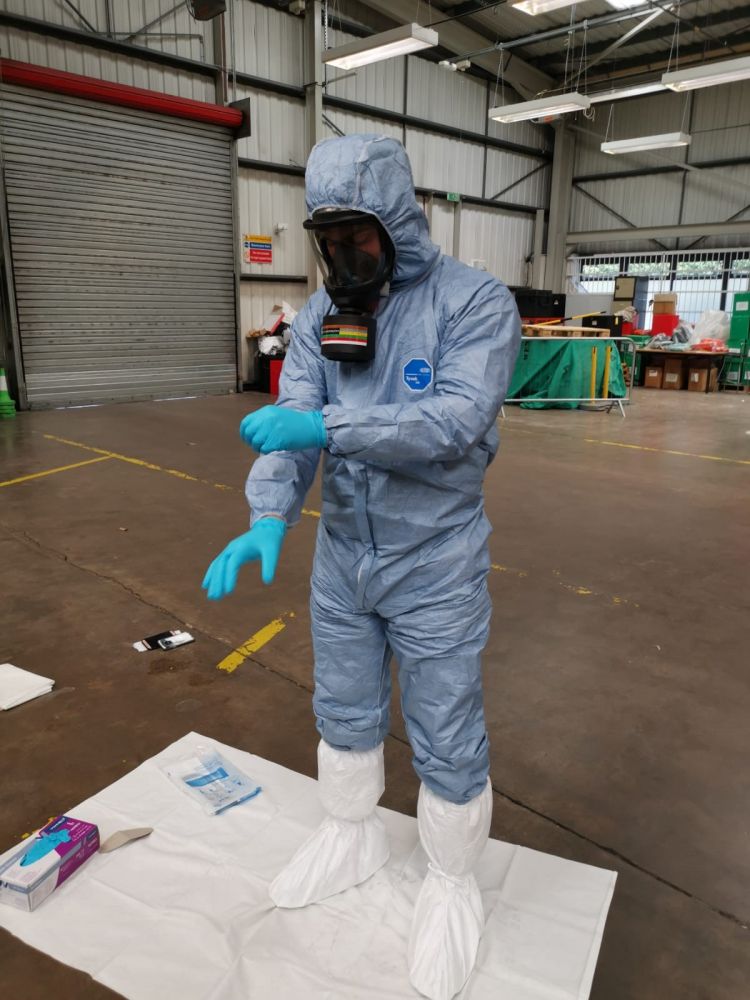What's life like for young health and safety reps?
This Young Workers’ Month, I spoke to five young health and safety reps to find out how they came to be in the role and what it’s been like for them.
Train driver James Sutherland has been working on the railways for most of his life. At the age of 16, he joined the RMT union whilst working in a seasonal role. “I kept my union membership and progressed to being an industrial representative for train guards. I have now been a member of ASLEF for eight years.”
For James, being a union member came naturally. “I had family members who worked within the rail industry, my father was also a trade union representative. I was always taught the benefits of worker solidarity.”
James took up the role of Health and Safety representative 3 years ago, seeing its importance in supporting members day to day, as well as preventing tragic accidents.
“Catastrophic results of failures in safety measures are always in the back of every rail workers mind. I enjoy making improvements to run of the mill but important aspects, such as messroom facilities and train cab improvements.”
James has also represented members on the issue of comfort at work, and the increasing rate of musculoskeletal problems due to poor ergonomics.
Being young has meant James felt he had to quickly prove himself in the role. He met with management early on to outline his priorities, “to establish myself as capable and confident”.
Responding to concerns during Covid-19 has been “very tough”, says James. “It all happened very quickly and the rate of change was fast. The biggest challenge for me was keeping members informed of the latest guidance.”
But social media has played a key role, making it easier to reach members and organise around concerns. This is a long-term improvement, too: “it has moved our branch forward from only having information divulged at a monthly branch meeting”
The coronavirus crisis also temporarily stalled James’s plans to progress his training, having already undertaken the TUC Health and Safety Representatives Stage 1 course, he plans to move on to Stage 2 in the new year.
James recommends the TUC training to others, adding “the course gives you a clear knowledge base of what legislation and regulations there are to support you and your members”.
What other advice would he offer to young trade union members considering a health and safety role?
Do it! Don’t worry about the length of service or seniority. There will be things that you as a young worker are better at and things that you can bring to the role that will benefit both you and your members. But always be ready to learn from more established representatives - the working together of youthful exuberance and age-earnt experience can deliver the best for your membership. There are always other H&S representatives out there who can lend support and guidance. I’ve never met a Rep who isn’t willing to help!
Ruth Oval, a Probation Service Officer, has been a member of Napo for six years.
She first joined the union over government plans to privatisation the organisation: “I was worried about the consequences”.
Ruth took up the role of health and safety rep two years ago.
Since then, she has come to see it as an all-important role, particularly in the context of years of threats to workplace health and safety, and the rights that come with the position: “it is the area that a rep has the biggest opportunity to make a positive difference in the workplace.”
A common concern from members is the safety of their interview rooms when using them to meet with service users. The Covid-19 pandemic has brought new stresses to the job but has also been “really motivating”.
Ruth says “To begin with, I was the only safety rep in the branch and the organisation could not release me to be able to be involved in walkthroughs and risk assessments. The main challenge has been getting the time. We have recruited more safety reps to be able to cope.”
Recruiting more reps has not only eased the burden but created a network for sharing ideas and successes.
Ruth faced challenges early from members who considered her motivation a result of youthful naivety. However, “they have started to see changes and are now starting to trust that I can get things changed.”
Ruth believes bringing young workers together is an important way to find a voice.
Older members are more confident in talking about their workplace issues, and it’s easy for young members to think that union meetings perhaps aren’t for them. Bringing young members together allows them to speak about issues that affect them without being spoken over.
Matthew Proud is a Customer Service Engineer for Openreach and Senior Safety Rep with the CWU. He joined the union after hearing about how the union has helped members over the years.
Having held the safety role for seven years now, Matthew was first drawn to becoming a rep because of the risk that telecoms engineers face daily. As a dedicated specialist, he is frequently responding to members’ queries and concerns about their safety rights.
Matt has received a lot of training, both from his union and joint training from the union and employer. This is where he expects to see some change due to the pandemic: “remote learning is going to be key”.
Being young has not posed any challenges for Matthew when negotiating with management, as “the training you receive gives you the confidence to challenge tactfully”.
The same is true in dealing with members: “I have members with double my length of service who are happy to take guidance”.
Matthew emphasises the need for more young trade union members to step forward into the role: “[We] are key to the future of the trade union movement”.
If we are going to build the reps base among young members, though, we need to do more to remove the “stigma” attached to health and safety, he says.
“Those who are not involved in it may assume that it is boring. I can assure you this is not the case: every day is different. One day you could be working on an incident investigation and the next you could be resolving a safety issue that could have cost someone their life.”
Matthew’s advice to other young union members?
Do not allow your age to be a barrier in getting involved as the training and support you receive will give you the confidence to carry out the role to your best ability.
Dave Pitt, who works as Crew Commander in the fire service, has been a member of the FBU for eleven years and a health and safety rep for four.
The training offer was one reason Dave was drawn to the role, having now completed the TUC Stage 1 and Stage 2 courses.
“I wanted to get involved in shaping operational procedures at work to ensure firefighters could be as safe as possible, and also wanted to have a better understanding of health and safety.”
A trade dispute Dave led has delivered an improved health and safety collective agreement, with stronger influence for the union, and health and safety meetings now taking place every month instead of 4 times a year.
One of the issues Dave is most commonly responding to is the accidents and injuries associated with manual handling.
The Covid-19 pandemic has also brought up significant challenges.
One of the key successes for the union nationally has been working with employers to ensure members had access to the highest levels of personal and respiratory protective equipment.
For Dave it is age, as well as experience, that determines whether members will approach you with concerns, according: “I have been asked for more advice the older I have become”.
But being a health and safety rep can also make members “better at their jobs”, he says.
Dave encourages other young trade unionists:
Try it: there's the chance to earn some good qualifications and it will help you assist others in keeping safe at work.
“I'm passionate about helping those who are afraid to speak out,” says Emma Thornton, an English Teacher in a secondary academy school.
She’s been a member of her union for ten years, originally joining because it was the one with the most members in the school and with an active rep.
She’s been a NEU health and safety rep for a year, and in that time has recruited two more safety reps, going on to lead a team.
Since then, she’s seen how health and safety is a major workplace issue, touching on all aspects of work: “most concerns can be linked to our physical or mental well-being.”
From her first day in the role, Emma says serious safety concerns regarding student behaviour were her focus.
The school had been placed into ‘special measures’: “we regularly made the local press because of paramedics being called to the school and heavy police presence because of student rioting.”
The first step Emma took was to conduct a health and safety questionnaire for members.
This allowed the workforce to collectivise concerns and present them to management, an the strength of responses led to a new behavioural policy being adopted.
The coronavirus crisis has presented new risks, but has also provided new opportunities to build the union.
“We set up a WhatsApp group with members so that they could immediately highlight any concerns with the risk assessment as well as anything else. It also meant we could quickly and easily share the national information with members, such as all-member Zoom calls, or new NEU guidance on re-opening.”
Emma’s younger age meant management was at first dismissive.
I think I look younger than I am, and I do think management at first might not have thought I knew what I was talking about because of this. However, once relationships were established, they soon accepted that I do know what I'm talking about and that I am passionate about ensuring the voice of every member is heard.
Emma thinks other young union members should put any fears to one side when considering becoming a safety rep.
“It's an incredibly rewarding role. It becomes a lot less scary to speak out when you have a whole group of other people behind you saying the same thing.”
Stay Updated
Want to hear about our latest news and blogs?
Sign up now to get it straight to your inbox









